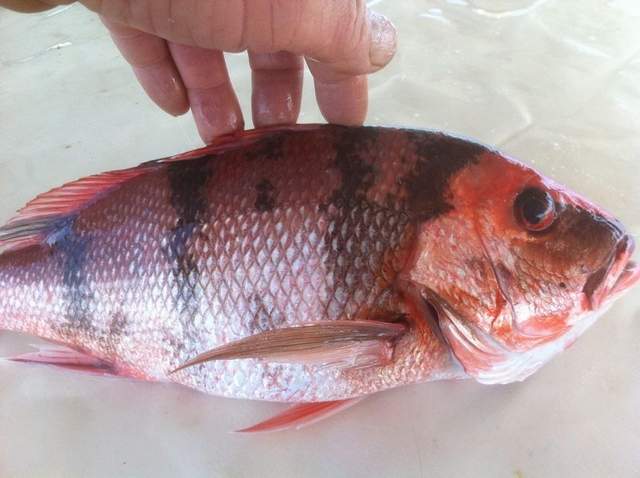
Red snapper with abnormal stripes caught by a local commercial fisherman. Scientists are seeing a growing number of Gulf fish with lesions and other health problems and are conducting tests to determine whether they are related to the BP oil spill. / Special to the News Journal
Kimberly Blair - Pensacola News Journal - May 7, 2011
Scientists are alarmed by the discovery of unusual numbers of fish in the Gulf of Mexico and inland waterways with skin lesions, fin rot, spots, liver blood clots and other health problems.
"It's a huge red flag," said Richard Snyder, director of the University of West Florida Center for Environmental Diagnostics and Bioremediation. "It seems abnormal, and anything we see out of the ordinary we'll try to investigate."
Are the illnesses related to the BP oil spill, the cold winter or something else?
That's the big question Snyder's colleague, UWF biologist William Patterson III, and other scientists along the Gulf Coast are trying to answer. If the illnesses are related to the oil spill, it could be a warning sign of worse things to come.
Recent Comments